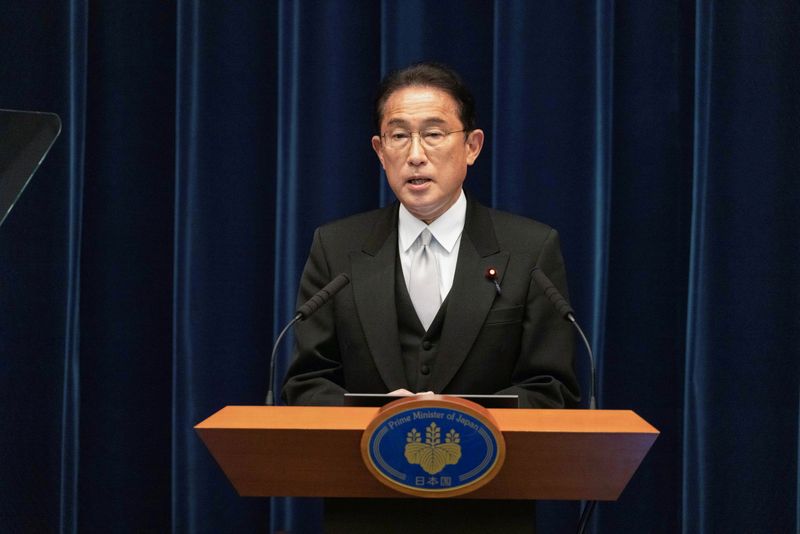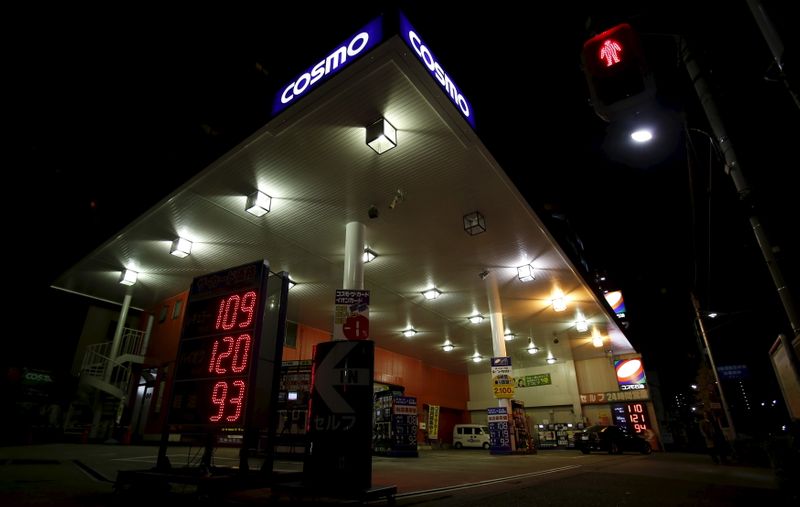By Tetsushi Kajimoto
TOKYO (Reuters) -Japan is considering releasing oil from its reserves for the first time to curb surging oil prices, Kyodo news agency reported on Saturday, as Prime Minister Fumio Kishida signalled his readiness to counter oil price hikes following a request from the United States.
However, Japan may struggle to justify such a move, as under its own laws the country can release reserves only at a time of supply constraints or natural disasters, but not to lower prices.
The U.S. administration of President Joe Biden, who faces falling approval ratings and higher gasoline prices, has pressed https://www.reuters.com/business/energy/asia-looks-spr-shock-treatment-high-oil-prices-after-us-request-2021-11-18 some of the world's biggest economies to consider releasing oil from their strategic reserves to quell high energy prices.
The requests include asking China for the first time to consider releasing stocks of crude.
"We're proceeding with consideration as to what we can do legally on the premise that Japan will coordinate with the United States and other countries concerned," Kishida told reporters.
"We want to draw a conclusion after thoroughly considering the situation each country faces and what Japan can do."
Japan has tapped its reserves in the past to deal with the fallout of the Gulf War in the early 1990s and the deadly earthquake and tsunami in 2011.
Chief Cabinet Secretary Hirokazu Matsuno said on Thursday that Tokyo was closely watching the impact of rising oil prices on the world's third-biggest economy.
"While urging oil-producing nations to ramp up oil output, we will strive to stabilise energy markets by coordinating with major consumer nations and international organisations such as IEA (the International Energy Agency)," Matsuno said.
Resource-poor Japan gets the vast majority of its oil from the Middle East. Recent surging oil prices and a weakening yen are driving up the cost of imports, dealing a double blow to a trade-dependent nation.

Kishida's government on Friday unveiled a record $490 billion stimulus plan including measures to counter higher oil prices. It plans to subsidise oil refiners in the hope of capping wholesale gasoline and fuel prices to ease the pain to households and firms from rising oil costs.
"What's important is to urge oil-producing countries to ramp up oil production," Kishida said last month after discussions with cabinet ministers. "We will arrange concrete measures after confirming what industry sectors are being affected."
